Handguns
Gun Carrier Review | The Best Handgun Caliber
Published
12 months agoon
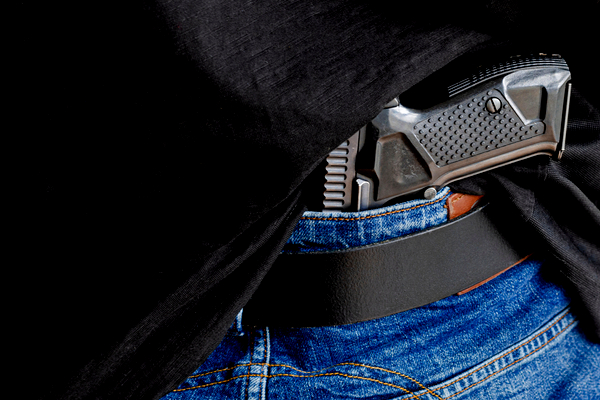
Would you go for the 9mm or the .45 ACP? The truth is, there is no right answer. But what we can do is share our thoughts on our choice of handgun calibers. This will help you in making an informed decision. Read on as we guide you in your quest for the best handgun caliber.
RELATED: 5 Awesome .45 ACP Handguns You Must Have
The Best Handgun Caliber
Handgun Caliber Considerations 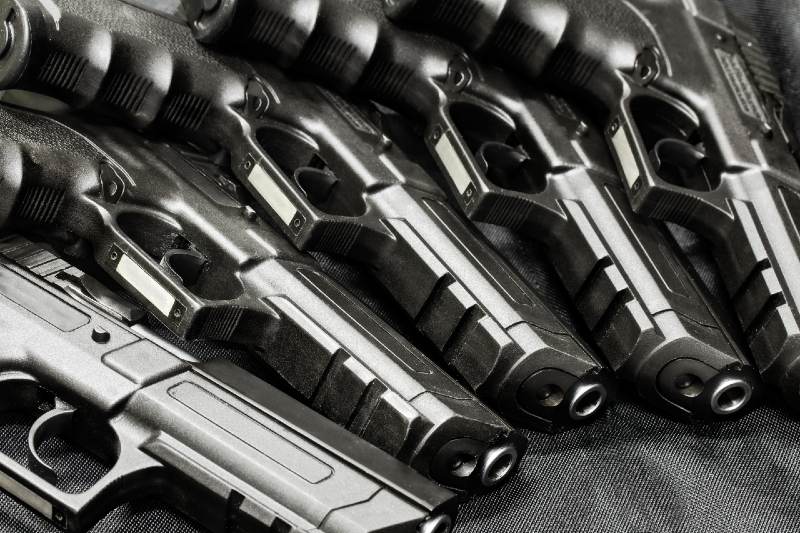
Want to know the truth? The truth is, no handgun caliber is better than the other when it comes to soft tissue damage. The 9mm’s velocity makes no difference to that of the .45 ACP in this aspect. The velocity of a bullet shot from a rifle is strong enough to inflict severe damage.
It may cause massive trauma and result from hydrostatic shock. But it is not the same as a 9mm, .45 ACP, and other conventional calibers. A rifle bullet is capable of destroying the muscle right from the bone. Conventional calibers can only poke holes. These small holes will only result in the least soft tissue damage.
This is fact-based on reliable medical experts in treating handgun wounds. According to them, shot placement plays a huge factor than the caliber used.
So, what now? Where does this lead us to? There are crucial elements you need to consider in choosing the best handgun caliber. Below are six of the most important ones that may help you in your decision making:
6 Important Factors to Consider in Choosing the Right Handgun Caliber 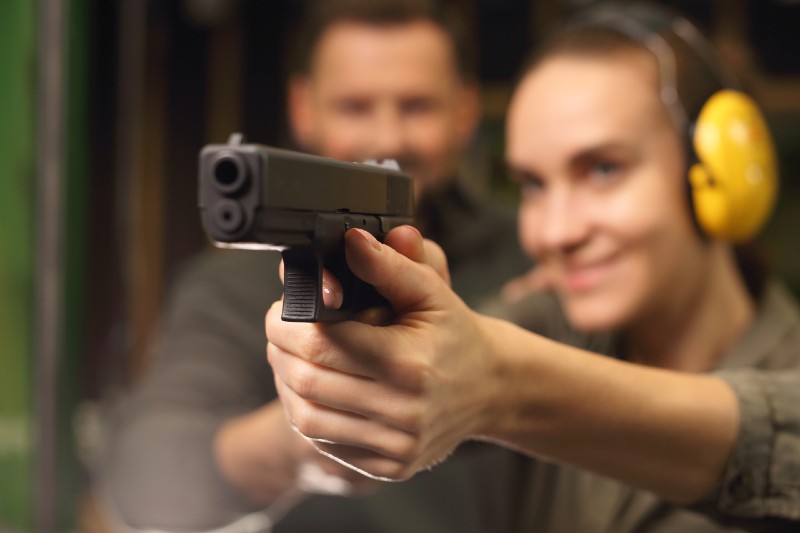
1. Penetrating Power
Bullet penetration is the primary factor in deciding which handgun caliber to choose. This is the amount of human tissue the bullet can pass through. These include fat, muscles, bones, and organs. As a rule, large and heavy-grained bullets have superior penetrating power. It inflicts massive tissue damage and very optimal to stop the target on its tracks.
2. Permanent Cavity
The permanent cavity is the size of the hole created by the bullet in the body. Every bullet can leave behind a permanent cavity. This is measurable. A good rule of thumb is, the bigger the permanent cavity or hole, the better is the stopping power. Simple as that.
3. Kinetic Energy
In simple terms, kinetic energy is the bullet’s energy shooting from the firearms’ muzzle. Motion and acceleration cause it. It maintains the kinetic energy of the bullet until a change in velocity occurs.
It changes as far as it travels. In a nutshell, a bullet’s kinetic energy lessens during flight. Generally speaking, a bullet with a heavier grain moves faster. A bullet with stronger muzzle kinetic energy can inflict more body tissue damage.
Factors that affect bullet performance are design, weight, type, energy, velocity, and distance. This is about its kinetic energy. Handgun calibers do not have enough kinetic energy transferred to the surrounding tissue.
4. Fragmentation
This is how the bullet disperses as it separates into smaller fragments when shot. Bullet velocity and design are two important factors that determine fragmentation. Fragmenting bullets won’t over-penetrate.
This is crucial since penetration is an utmost priority for handgun caliber users.
RELATED: 40 Best Handguns for Women
5. Ammo Ballistics and Gun Characteristics
This is about gun and ammunition design, rated muzzle speed and, rated muzzle energy. It also includes bullet weight grain, cartridge type, and barrel length. Control and accuracy vary from caliber size. Felt gun recoil has a huge impact on these aspects.
6. Skills and Knowledge
The final element is about the techniques and rudiments of shooting. The aim is to achieve safety and accuracy. A handgun user should put focus on these elements as much as they would on the type of equipment they want to use.
Your ability as a shooter at shot placement is important. It is paramount in making the handgun caliber work in your favor.
Which Handgun Caliber is Better?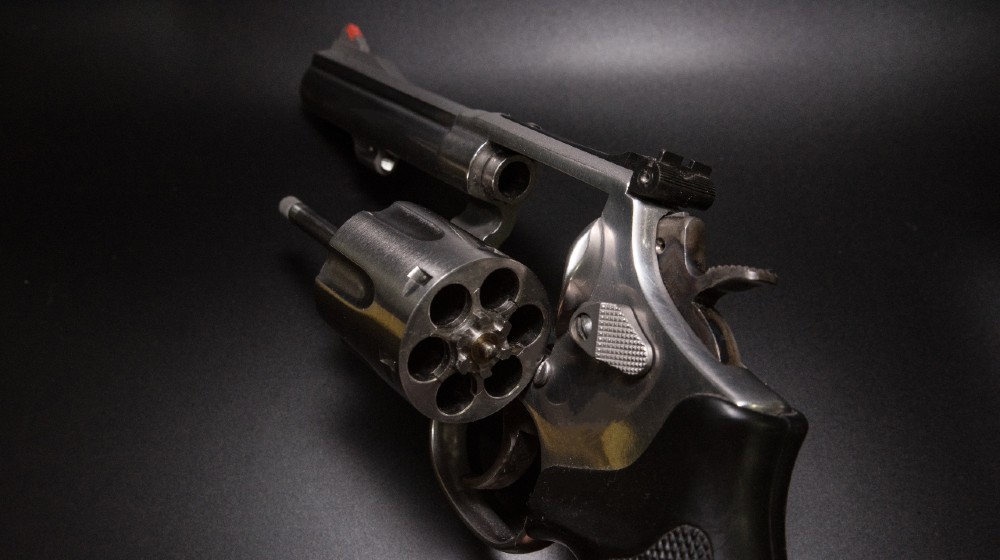
There is this common notion among many gun users. The belief that revolvers are more reliable than self-loading pistols. They maintained that the revolver's chamber has a more powerful caliber, like the popular .357 Magnum.
But how often do you see gun users carrying .357 magnum these days? In reality, there is no established evidence about this notion. The notion that an autoloading handgun caliber is less reliable than a revolver. The superiority of the .357 Magnum is now challenged by the .357 Sig or even the 10mm.
There are different criteria in choosing the right defensive caliber. One of the top criteria is lethality. It is all about the capacity of the handgun caliber to kill. It all boils down to stopping power. The bullet should be able to damage the target’s vital organ.
The bigger the damage, the more effective the gun is. There is not much difference between a 9mm or an 11.44mm hole. A 1.4mm shot won't compensate for poor shot placement. And what about “knockdown power”?
People get caught up in this myth. The truth is, “knockdown power” is impossible to express in mathematical terms. In short, it does not exist at all.
Conclusion
Guns and ammunition are tools. Your equipment is only as good as its handler. Whatever handgun caliber you use, it is your ability as a shooter that would make it effective.
Revolver or an autoloading pistol, you should be able to shoot at a target with accuracy. Permanent cavity wounds and penetration play an essential role in incapacitating your target. In fact, these factors are very critical for handgun caliber users.
To be effective, you should achieve a least 12-inch penetration for the chosen bullet. A bigger permanent cavity enables best bleeding ergo faster incapacitation.
For self-defense purposes when using a handgun, this is paramount. All type of bullets expands with varied temporary holes.
More often than not, ammunitions with better expansion capability penetrates less. Experts designed the fragmenting bullet to avoid over-penetration. It is less to penetrate better for self-defense purposes.
Another point to consider is the choice of bullet weight and grain. Bullets may be of similar weight or grain but may perform with different results. Usually, bullets that could expand less have the capacity to penetrate a lot deeper.
It Is All About the Skills and Not The Equipment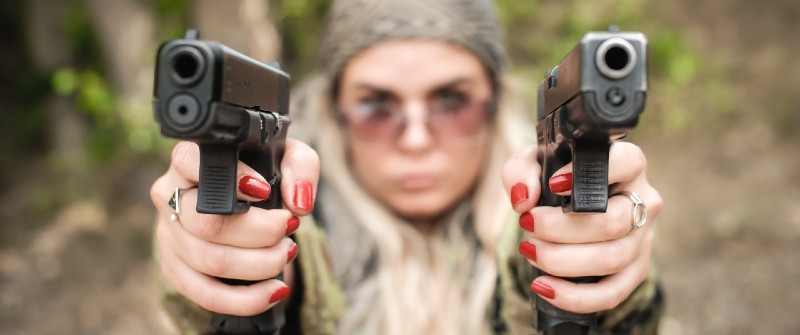
And we cannot stress this enough. Your capability to place shots with accuracy and consistency is essential. It exceeds the importance of a caliber’s stopping power. According to research, there is not much difference between 9mm and .45 ACP cartridges.
This is true as long as you use quality high-power ammunition. Considering all these factors, we can say that the 9mm handgun caliber is the best. But, it should be with +P load, HP ammo, and 124-grain weight.
There is a legal liability depending on the ammo and caliber you choose. Court rulings may vary from state to state.
Consulting a legal expert would help. Knowing your way through specific legislation on guns is important. There are also various sources available online. This crucial in the event of carrying self-defense circumstances.
You should be aware of this particular technicality. This article provides variables that you need to test in making a caliber decision. For the sake of your life and safety, it is best to be rational and logical before you take the next step.
Watch this video of Rational Preps on The Best Handgun Caliber – A Real World Study:
So, are you ready to choose the best handgun caliber that would suit you best?
Feel free to share your valuable thoughts by leaving a comment below.
Up Next:
- The Best Handguns for Home Defense
- Is The .25 Caliber Good For Self Defense?
- 5 Essential Guns You Should Own
Follow us on Facebook, Instagram, Twitter, and Pinterest!
Disclaimer: All content on this site is for informational purposes only. Please read our full disclaimer here.

Staccato P Review | Staccato P 1000 Round – The Most Accurate Duty Pistol

Sawed Off Shotgun | Everything You Need To Know

CZ 75 SP01 Tactical Gun Review | Gun Carrier

PODCAST: Gun Law Changes All Across America Right Now

PODCAST: How to Win Olympic Gold

PODCAST: 50 Important Ideas For Self-Defense, Self-Reliance, and Personal Safety


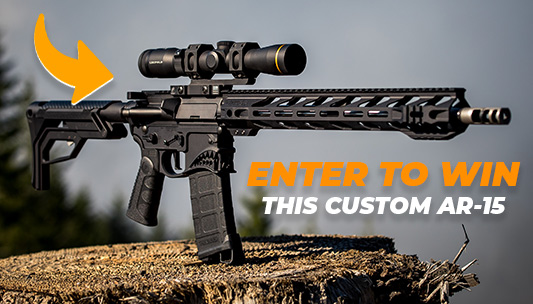
Larry
May 5, 2021 at 5:59 PM
I have used a lot of auto’s and revolvers, and I can tell you that a revolver is a lot less likely to jam up on you. An automatic can be sensitive to the brand of ammo. The cartridges are digested through a mechanism, and several things can and do go wrong. For just one example: sometimes the casing being ejected doesn’t get out of the way in time and jams the action. With a revolver you have none of these problems.
rick
April 30, 2021 at 10:20 PM
some of what you said made no sense and your grasp of english grammar could be improved upon, also. an example of not making sense is when you make the argument about some thinking the revolver is more reliable than a pistol. in the first paragraph you change from present to past tense and talk about the chamber and 357 as opposed to reliability of the platforms. then you, for no reason, start another paragraph, making two paragraphs out of what should be only one. in this paragraph you state that there is no evidence for this notion, which was in the preceding paragraph. you follow this with a sentence which is just a phrase, “The notion that an autoloading handgun caliber is less reliable than a revolver.” this phrase is actually the subject of a sentence to be followed by a verb and makes no logical sense in what it is trying to say, anyway. please take a class in both grammar and logic if you want to be taken seriously. i guess that the point you are trying to get across is that shot placement with a large caliber round nosed bullet is what one needs.
Rich A.
April 30, 2021 at 3:52 PM
I have 2 Glocks in .40 S&W, a 2nd Gen 22 and a 4th Gen 23. I also have .45’s and several 9mm’s. I prefer the .40 for several reasons; the high speed and deep penetration of the 9mm, as well as the magazine capacity; the heavy bullet (165-180 gr) and “knock-down” power of the .45. If you HAVE to compromise and can’t own at least one of each, the .40 is an acceptable, broad spectrum choice.
And let’s not forget the venerable .38/.357. Serving faithfully since the turn of the century, despite limited capacity (get speedloaders) and slightly less power (use .357 mags).
Tina Roberts
April 30, 2021 at 2:26 PM
How about a 9mm inside the belt, a 45 in the shoulder holster, a 380 in the ankle holster and a Smith 500 in the backpack?